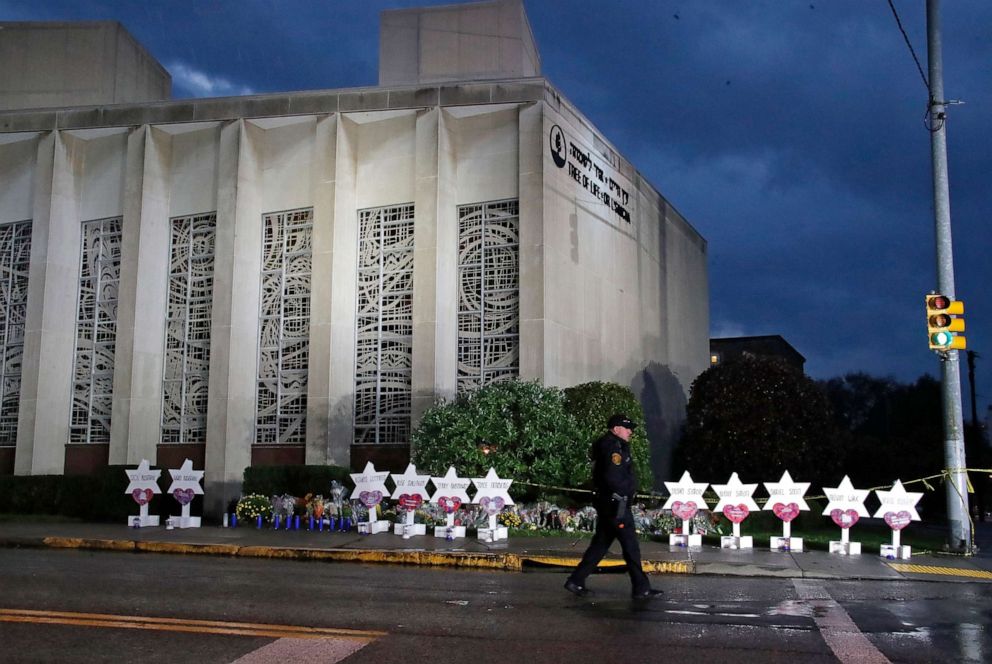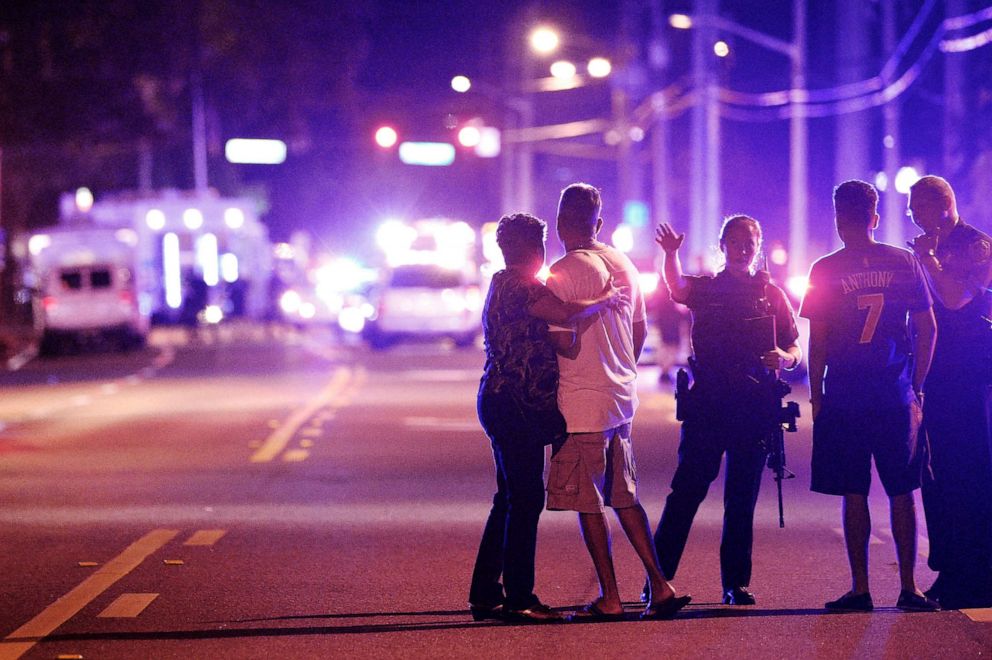Rep. Alexandria Ocasio-Cortez appears to conflate two types of FBI cases in viral video
The New York congresswoman pressed a top FBI official about domestic terrorism.
In a video clip that has now gone viral, Rep. Alexandria Ocasio-Cortez pressed the FBI’s top counterterrorism official over what she called "discrepancies" between the FBI’s handling of violent white supremacists and Muslim extremists.
"There are holes, and there are gaps here," the Democrat from New York told FBI Assistant Director Michael McGarrity during a House hearing on Tuesday, claiming Muslim perpetrators have been charged as "domestic terrorists" while white supremacists have avoided such charges.
But is that true? Not exactly.
She's right that federal authorities have prosecuted such cases differently – but it's not in the way Ocasio-Cortez claimed or for the reasons she seemed to imply.
Any "discrepancies" in prosecution are largely rooted in the laws as passed by Congress, not policy decisions made inside the FBI.
During Tuesday's hearing, Ocasio-Cortez acknowledged, "It could be our fault as Congress." And, as their back-and-forth escalated, McGarrity tried to caution her: “Some of the definitions we’re using, I think we’re talking past each other.”
But Ocasio-Cortez doubled-down the next day, posting to Twitter: “[T]he FBI witness tried to say I was wrong. … but then we checked. I wasn’t.”

Here are the facts:
‘Clearly domestic terrorism’
At Tuesday’s hearing, Ocasio-Cortez cited what she called two "clear" cases of domestic terrorism: A white supremacist's 2015 attack on a historically-black church in Charleston, South Carolina, that killed nine African-Americans, and last year's anti-semitic rampage inside Pittsburgh's Tree of Life synagogue that left 11 Jewish worshippers dead. The congresswoman said those two cases “were only designated and charged as hate crimes, not domestic terrorism incidents.”
By contrast, according to Ocasio-Cortez, the ISIS- and al Qaeda-inspired attack inside a San Bernardino, California, municipal building in 2015 and the similarly inspired massacre at Orlando’s Pulse Nightclub a year later “were designated and charged as domestic terrorist incidents.”
But Ocasio-Cortez appeared to be confusing two different types of FBI cases – a mix-up that even law enforcement officials outside the FBI often make too.
None of the perpetrators in those ISIS-inspired cases was designated or charged as a “domestic terrorist.” Instead, they were each designated and charged as a “homegrown violent extremist,” which may sound like a “domestic terrorist” but is actually quite different, at least to the FBI.
They are not the same
As McGarrity told the House panel at the beginning of the more than three-hour hearing on Tuesday: “The FBI categorizes [terrorism] investigations into two main programs: international terrorism and domestic terrorism.”
International terrorists include not only extremists overseas actively involved with groups designated by the U.S. government as “foreign terrorist organizations,” but also radicals inside the United States who draw inspiration from those designated groups – known as “homegrown violent extremists.”
The domestic terrorist designation, meanwhile, has little to do with international terrorism. "Domestic terrorists" are defined as those moved to violence by what McGarrity called “domestic influences, such as racial bias and anti-government sentiment.”

Though all terrorists inside the United States seek to inflict harm and create fear, “the FBI distinguishes” between those identified as “domestic terrorists” and “homegrown violent extremists,” based on what radicalized them to violence, McGarrity emphasized.
The FBI is currently investigating about 850 possible domestic terrorists and tracking another 1,000 potential “homegrown violent extremists,” according to McGarrity.
‘Congress doesn’t have a statute’
"However, what causes some confusion is that 'domestic terrorism' is not an offense or a charge," the then-head of the Justice Department's National Security Division, John Carlin, explained several years ago.
The fact is domestic terrorism investigations – like those into the Charleston church shooting and the Tree of Life synagogue attack – cannot produce “domestic terrorism charges,” McGarrity reiterated Tuesday.
“You’re not going to find an actual charge of domestic terrorism out there,” he insisted.
There are actual terrorism charges available for cases tied to international terrorist groups.
The couple that launched the deadly San Bernardino attack were killed by police, but the Justice Department prosecuted a longtime friend of theirs who purchased two weapons used in the attack. He ultimately pleaded guilty to engaging in a “conspiracy to provide material support to terrorists,” as designated by the U.S. government. He has yet to be sentenced.
In 2017, the wife of the Orlando nightclub shooter was indicted on charges that said she “did knowingly aid and abet [her husband’s] attempted provision and provision of ‘material support or resources’ … to a designated foreign terrorist organization.” A federal jury acquitted her of the charges.

But, unlike ISIS and al Qaeda, no network of American white supremacists has been officially designated a “terrorist group” – a move that could raise significant First Amendment concerns. And Congress has not passed laws explicitly criminalizing acts of “domestic terrorism.”
To bring federal charges against domestic terrorists, the FBI and Justice Department often rely on weapons-related statutes or laws tied to hate crimes.
That's why the FBI "worked" the Charleston church shooting and Tree of Life synagogue attack "as both a domestic terrorism case and a hate crimes case," McGarrity said.
“We’ll use any tool in the tool kit to arrest them,” he added.
If a white supremacist were tied to some group designated a foreign terrorist organization by the U.S. government, that could allow federal prosecutors to charge the white supremacist with the same offenses as an ISIS-inspired terrorist – but no such case has ever been identified.
‘Neo-Nazis are getting off the hook’
In her Twitter post on Wednesday, a day after the hearing with McGarrity, Ocasio-Cortez called the hearing "wild."
But in saying her team "checked" and that she "wasn't" wrong, it's unclear exactly what Ocasio-Cortez believes she was right about during Tuesday's hearing. Her office did not respond to emails seeking comment for this article.
Back on Twitter, she offered this conclusion: “Neo-Nazis are getting off the hook.”
Indeed, at the House hearing on Tuesday, other Democrats expressed concerns beyond the FBI, particularly over how the Department of Homeland Security is now addressing white supremacy.
Rep. Debbie Wasserman, D-Florida, said the Trump administration is “send[ing] a signal that you don’t care about it as much” by shifting resources “elsewhere” and reducing requests for federal to combat domestic terrorism.
ABC News' Alex Mallin contributed to this report.




